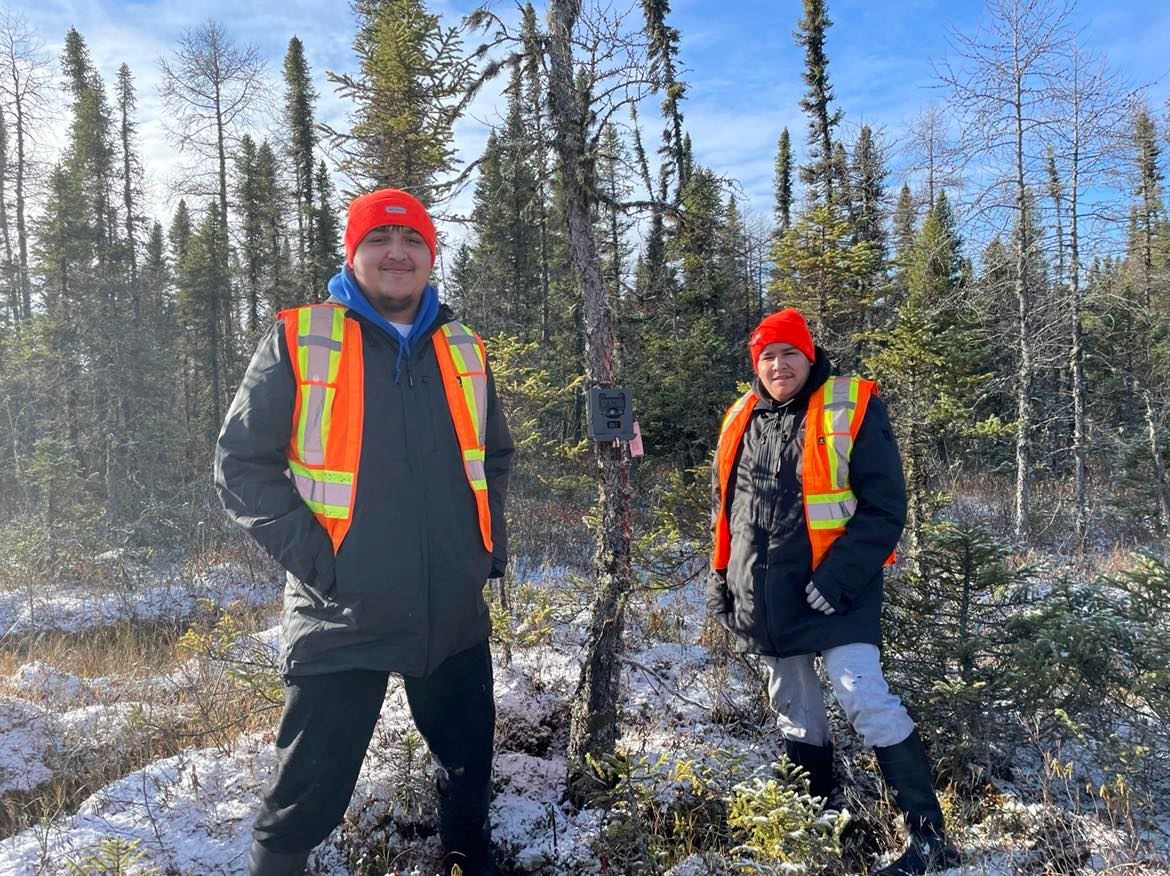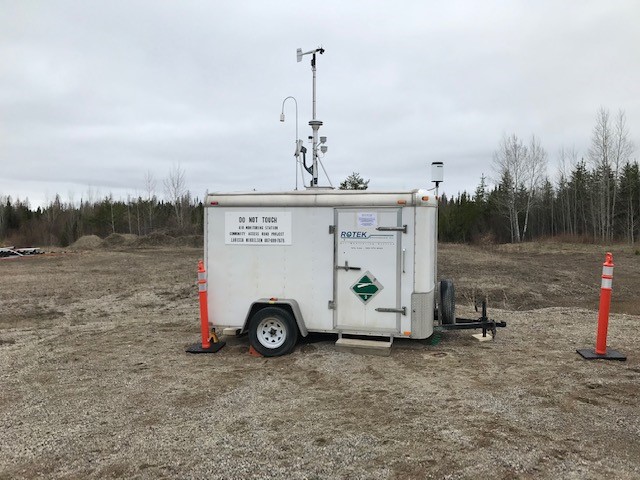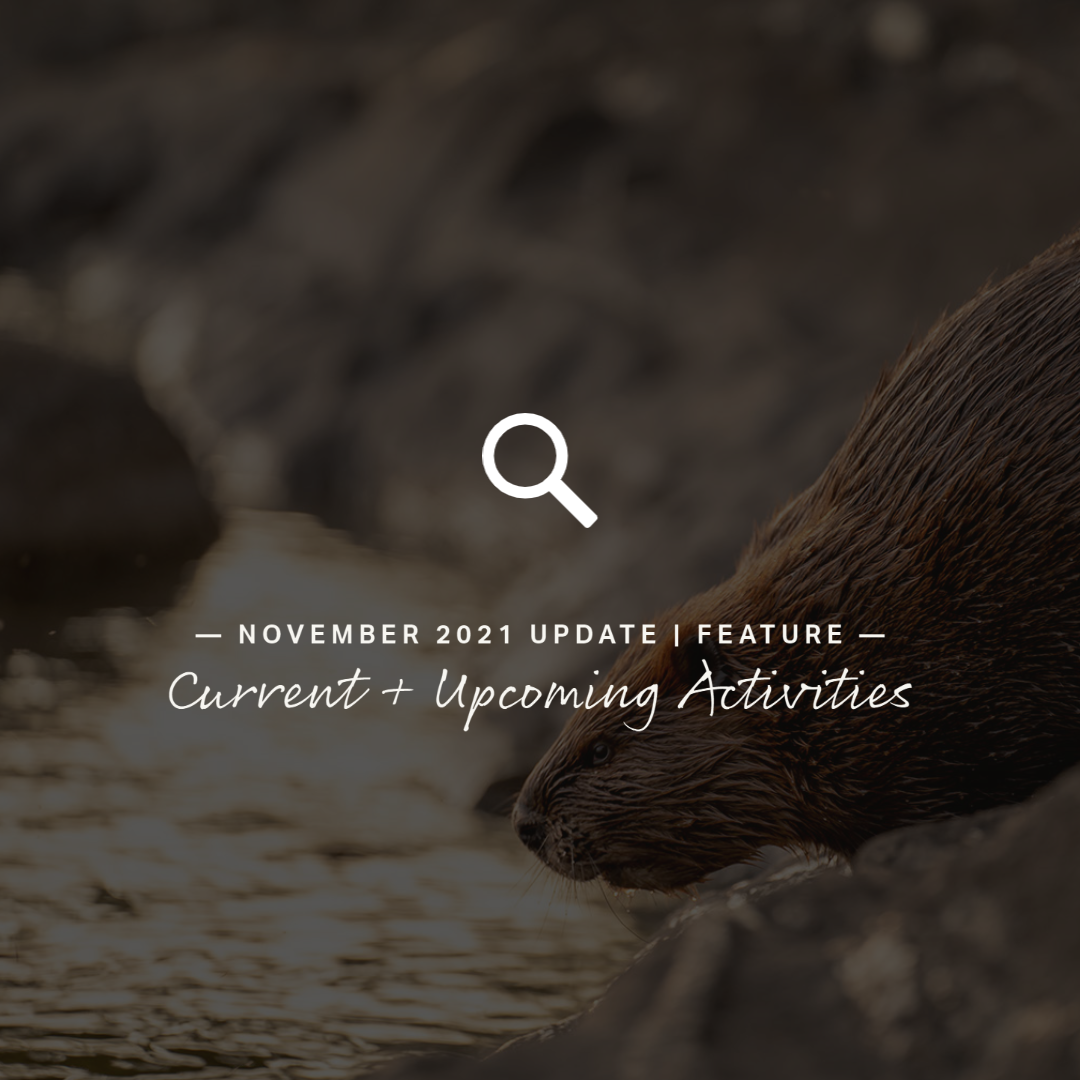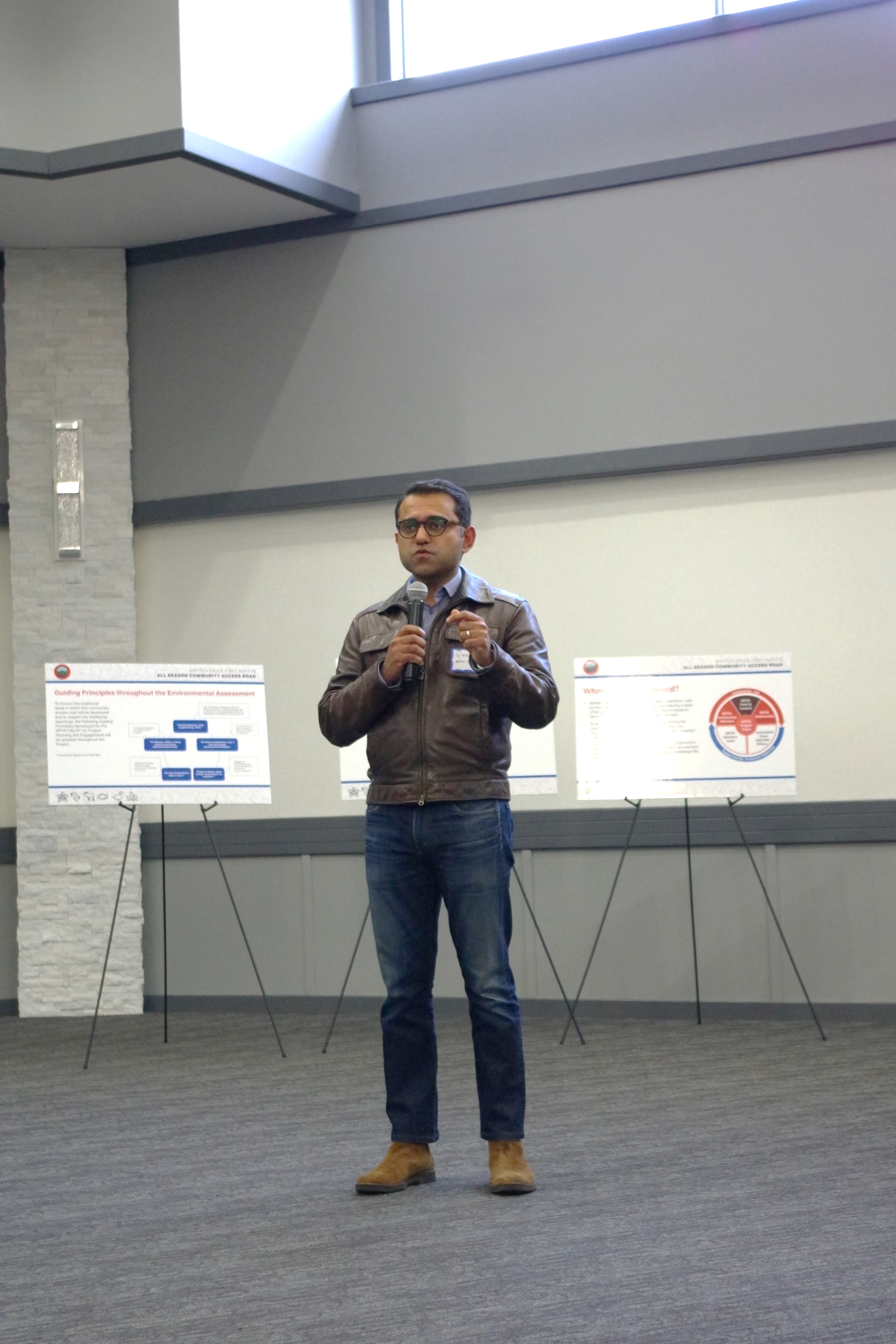Welcome to the Marten Falls First Nation (MFFN) Community Access Road (CAR) November e-blast with updates on current and upcoming activities. In this e-blast you will learn about:
Environmental Assessment
Where we are at in the provincial process.
Field Studies Update
Overview of recently completed and upcoming field studies.
Valued Component Video
Watch the newly released videos about the ‘valued components’ we are studying for the Environmental Assessment and Impact Assessment.
Project Team Profile
Meet Qasim Saddique, Advisor and Project Director.
.
Environmental Assessment
The Ministry of the Environment, Conservation and Parks (MECP) Minister Honourable David Piccini has approved the Terms of Reference with amendments on October 8, 2021. Click here to view the Notice of Approval. This means that the Community Access Road can now start the Environmental Assessment phase. On October 29, 2021, the Community Access Road entered the Environmental Assessment phase of the provincial process with the release of the Notice of Commencement for the Environmental Assessment.
The Notice of Commencement is available in English, French, Ojibway, Oji-Cree and Cree.
.
Field Studies Update
Recently Completed Field Studies
Remote Camera Check
The Remote Camera Check field program started earlier this month and included two MFFN community members as Field Study Support Staff—Matthew Waboose and Levi Baxter. Matthew and Levi were instrumental in the speedy helicopter refueling and used GPS to lead the team to camera locations. Read about Levi’s experience as a Field Study Support Staff in the October e-blast available on our website. Read the initial field notice.
The program couldn’t finish due to technical difficulties and we expect the remaining site visits to be completed over the course of two days in December. Dates will be provided once confirmed.
Air Monitoring
In November, technicians made a second maintenance visit to the air monitoring device in MFFN. This marks the halfway point for the air monitoring program! This study is important to help us understand the current air quality levels of the study area. Local air quality is affected by sources of emissions within the Project area. Some of these sources include community vehicle traffic, airport activity, wood and fuel burning furnaces and diesel engines in Marten Falls. Seasonal forest fires also have the potential to influence local air quality, specifically particulate matter concentrations. The program will run until May 2022 and continues to be supported by MFFN community member Support Staff conducting weekly inspections and maintenance on the device.


Upcoming Field Studies
To help us understand the current conditions (quality and quantity) of the environment along the proposed alternative routes, scientific field studies will continue to be taking place for aquatic and terrestrial environments and wildlife. The information we collect through these studies will be strengthened by the Indigenous Knowledge shared with us by MFFN and neighbouring Indigenous communities through the Indigenous Knowledge Program.
Program-specific Discussion Guides will continue to be distributed to Indigenous community representatives with information about what the program is, why it’s important to the Community Access Road and asking for specific input. These guides are distributed ahead of field programs.
Below is a high-level overview of upcoming winter field study programs and their approximate timelines*:
- Ungulate Remote Camera Check (December 2021): Crews will finish the program started in early November to inspect and replace batteries and memory cards in remote cameras installed in June 2021. Cameras will capture images of animals like moose (moozoog), caribou (atigwag) and bears (makwa’ang).
- Furbearer Ground Track Surveys (January - February 2022): Transects, or straight lines through the study area, will be walked to inform the distribution, abundance and density of furbearers (such as wolverines [Wishkobishag / wiingwa’waakeg] and martens [Wabizheshihwag / wabashtanang]), and mammals in the study area.
- Ungulate Aerial Surveys (January - March 2022): Aerial surveys will be conducted to observe signs of wildlife including moose (moozoog), wolves (maihganang) and wolverine (wishkbishag), and to gather population and distribution information on caribou (atigwag).
- Wolverine Hair Snag Surveys (February – May 2022): Hair snag traps will be placed in the study area to provide information about wolverine (wishkbishag) demographics (male / female).
- Bird Autonomous Recording Units (February 2022): Audio recording devices will be deployed to gain an understanding of birds in the study area, including presence, distribution and abundance of birds. This will be the first of several bird programs in 2022.
Field Notice for upcoming Winter programs will be distributed shortly.
*Timelines and programs are approximate and may shift; we will provide updates as required.
.
Valued Component Videos
We are continuing to develop videos to showcase the valued components we are studying as part of the Environmental Assessment and Impact Assessment – click here to see the multimedia showcase! New videos will be added soon including air quality and greenhouse gases, cumulative effects, furbearers (such as wolverines [Wishkobishag / wiingwa’waakeg] and martens [Wabizheshihwag / wabashtanang]), and birds!
.
Project Team Profile
Qasim Saddique
Principal, Suslop
Advisor to Marten Falls First Nation Chief and Council & Project Director of the Marten Falls Community Access Road Project
Qasim Saddique is a management Consultant, Economist, Lecturer and Board Director with over 15 years of experience in socio-economic development, consultation and engagement, research, sustainability strategy, strategic communication, policy development, and training and education with Indigenous communities across Canada. Currently, he is a Principal Consultant at Suslop.
Qasim has had the privilege of acting as an advisor to Marten Falls Chief and Council since 2016 and under the direction of Chief and Council, he has led the community’s efforts to study and build the Community Access Road and the Northern Road Link projects. These projects will act as pillars for the community’s social and economic development. These are large infrastructure projects that set new precedents for Indigenous led environmental assessments where an Indigenous community does not just wait for opportunities but leads development through a community centric approach that benefits the community first.
Questions or comments? Contact us at 1-800-764-9114 or info@martenfallsaccessroad.ca.


